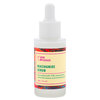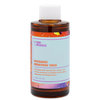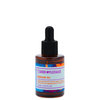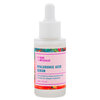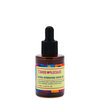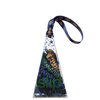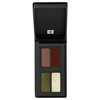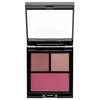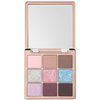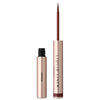On-Set Schooling: How to Become a Successful Makeup Artist’s Assistant
Published Nov 4, 2014

Beautylish is brimming with a community of artists ready to amp up their career, but the path to a high-profile position is anything but linear. The beauty school debate is still up in the air for most, but almost every artist we’ve ever interviewed advises some sort of on-set internship. Assisting a makeup artist on location is one of the most valuable opportunities any artist—amateur or pro—can experience. Take it from Danish-born, Los Angeles-based makeup artist and instructor Katrine Lieberkind, real-life exposure is pivotal! Katrine often assists for beauty greats like Billy B, and knows the ropes in the biz. From beauty school to editorial photo shoots to music videos, industry success is about more than your technique—it’s just as much about personality, relationships, and networking. For some insider insight on artistry etiquette, we turned to Katrine for her point of view. What exactly does an assistant makeup artist do? How should they act? Read our Q &A below and step into Katrine’s classroom.
B: What is the role of an assistant makeup artist?
I am in charge of making sure that the makeup artist has everything he or she needs. For me, the makeup artist is first priority, not the client. It’s not about the photographer, the model, or the singer. It’s about the artist—and for me it doesn’t matter what they want or ask for, I make sure they get it. I’m not uptight—I’ll get soda, it doesn’t have to do with makeup. It’s a very strong commitment.
B: But you must get to apply makeup as well?
It depends on the artist I’m working with. Sometimes they want you just to maintain the makeup, and sometimes there’s more creativity involved—they’ll explain the makeup look that the client has requested so you can make up one of the models. Or sometimes it’s about holding up a palette of colors for the artist to choose from. It varies.
B: When did you and Billy B meet, and how did you become his assistant?
After attending and working at Joe Blasco’s school for a year, I thought—I’ve practiced techniques over and over for the purpose of demonstration, but I really miss making something that’s becoming a product, being captured. I finished school, and was excited to get out and work. I started assisting a known celebrity makeup artist. A few years after that, we had a job working with Billy, and I got to assist him for the first time.
B: Tell us about that experience.
I think Billy was feeling me out to begin with. I stayed through the whole thing. I didn’t want to miss out on any opportunity—I was standing in the corner, waiting for him to tell me what to do. At some point he needed a cord for a makeup light, so he asked me to go buy one. It was a super-early morning call, and the stores weren’t even open yet. But I couldn’t come back empty-handed, so I went to the rental department and rented him a cord to use. He thought it was a resourceful move—you know, a maybe she can figure this out sort of thing. We worked together only a couple of times in the first year. I remember one time he asked me if I minded assisting. “God no! I’d love to work with you!” I replied. We worked together more and more, and I think he liked the fact that I went to school for makeup—part of the reason I learned special FX.
B: Is there an etiquette or “code of conduct” assistants should know?
The most important thing to realize is that you are there for the person you are assisting. Don’t promote yourself as a competing artist. It’s a no brainer to most people—and it makes you look silly. Some artists are more concerned over dress code than others. My rule of thumb is if you’ve worked with the artist before, dress in the same style they do. I had some jobs with a Parisian client, and dressed a little more chic.
Every situation is a little different, but, in general, you shouldn’t chat with the client—the primary focus is the artist. Billy’s not super chit-chatty. I know him well enough to understand when to leave him alone, and when we can talk. But less is more, stay a little more out of focus—assume you are extra arms.

B: So is the opportunity worth it?
ABSOLUTELY. I’ve been in situations with many artists where I’ve thought—thank goodness I am just an assistant on set. You get to learn how to handle real life situations and challenges—socially, business-wise, and creatively. That’s a huge benefit. Aside from that, you get to meet people that have an incredible amount of experience with different clients and products. I find that by assisting a lot of high profile artists, I get to learn some many new techniques. Out of thousands of products, they’ve chosen a select few to bring in their kit; I see how they use them. For instance, I learned that a little bit of Elizabeth Arden’s 8-hour cream is fantastic mixed into undereye concealer—it’s so thick it doesn’t run down the face or crack at all.
B: What kind of personality traits or skills are vital for an assistant makeup artist to thrive?
Hmm...resourceful, adaptable to every situation, inventive, and they definitely have to leave their ego at home. Also, you have to know when to keep your mouth shut. Even if it’s just to make sure your artist doesn’t lose face. I’ve been in situations assisting artists who have run into technical walls. Sometimes I want to blurt out “I know how to fix that!” out loud, but you need to know when it’s appropriate to come with suggestions. Even when you have a good solution to the problem, you have far less experience so you can’t foresee the whole picture.
I’ve also been in opposite situations where I’ve had assistants myself. It gives a bad impression if they don’t know when to shut up. If they start to intrude too much in the relationship between the artist and the client. When the timing is right and your opinion is welcome, it builds trust between you and the artist.
B: Money—that’s a tricky area to deal with. Thoughts on working for free?
You have to evaluate every job you take—assistant or not. Is this opportunity going to be worth your time? If someone asks me to work on a crazy creative personal project, then I’m all for it—money or not. If I get inspired, I’ll do it. But if the job is whatever, I’ll turn it down if it doesn’t pay and it’s more about having extra hands. It’s an individual decision.
B: How does one find their makeup mentor?
Really, whenever you have an opportunity to meet another makeup artist, ask them to contact you if they need an assistant. After I was a teacher at Joe Blasco, I stayed in touch with my students, and I now even assist some of them as well. If there’s a paid opportunity and they need someone extra, don’t be afraid to reach out.
B: Seems like a nice community of artists.
It is! Back in Copenhagen, when I first started out it was really hard because I felt like makeup artists saw everyone else as their competition. I think it’s so much more beneficial to look at everyone as a colleague, and a potential person that you may assist or who may assist you.
B: What about your portfolio—is that make or break?
I don’t think that anyone I’ve assisted has looked at my portfolio first. It’s much more about your personality and resourcefulness. Your ability to blend in with the situation, and not be too loud. Sometimes the best assistants remind me to drink water—they do things when I don’t ask them. They look out for me.
For more beauty insights, follow Katrine on Twitter @MsLieberkind.
You Might Also Like
-
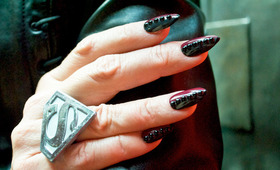
Features
Jan Arnold of CND, Fashion’s First Lady of Nails
- 122
-

Beauty Careers
Morticians Are Makeup Artists Too
- 195
-
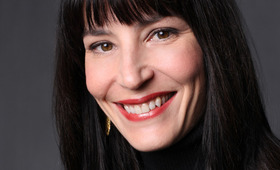
Beauty Careers
Beauty Careers: What it Takes to Make it in Marketing
- 237
-
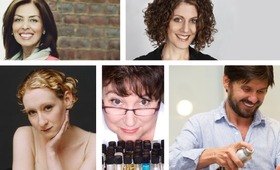
Beauty Careers
So You Want a Career in Beauty? Part 3
- 103
-
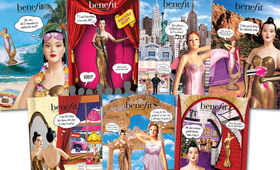
Beauty Careers
Beauty Careers: Benefit Cosmetics' Coolest Creative Director
- 149
-
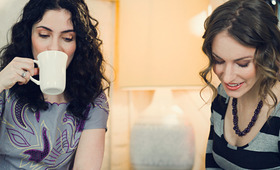
Beauty Careers
A Beginner's Guide to Beauty Networking
- 450
-
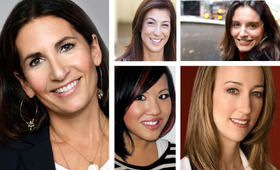
Beauty Careers
So You Want a Career in Beauty? Part 2
- 135
-
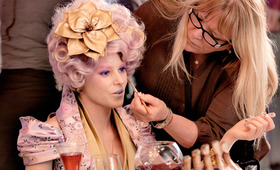
Beauty Careers
Academy Award-Winning Tips to Thrive in the Makeup Industry
- 405



